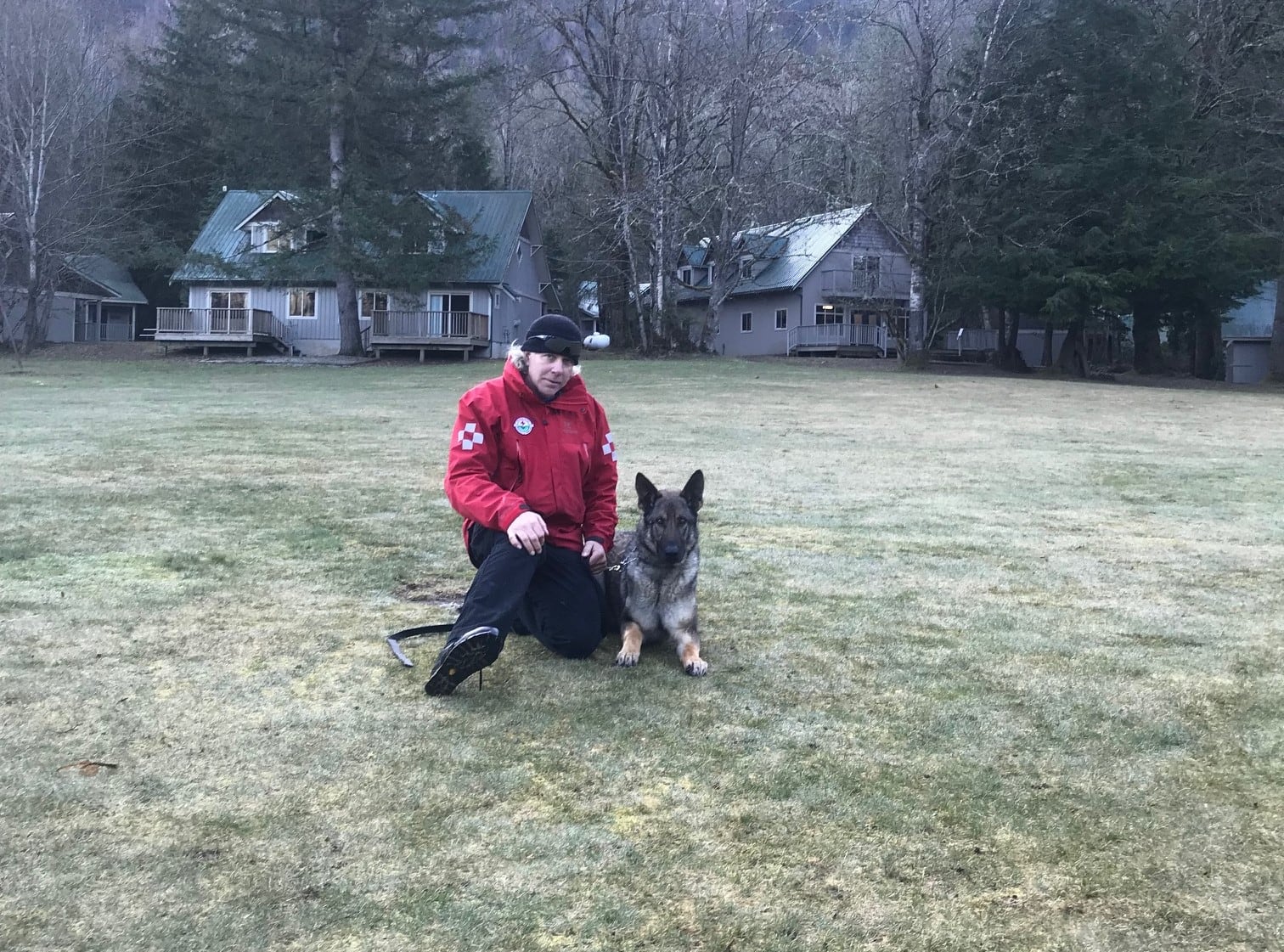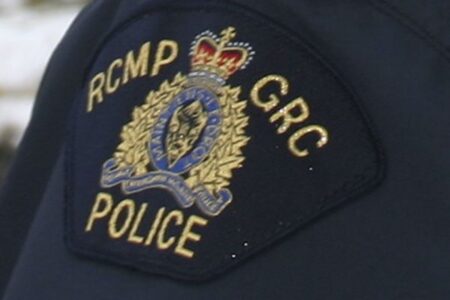A Second Search Dog in Training for Rossland SAR
Rossland SAR member Murray Watt and his dog Alla have been accepted into “In Training” status. Completing the training and getting certified as a search dog by the RCMP can take up to two years.
Not just any dog can be trained to join a SAR group. First, the dog’s person – handler — must be an active member of their local volunteer SAR team, and have completed Ground Search and Rescue Training. The handler should also have compass-use skills and be able to manage off-trail foot travel through brush, and be able to make good time at it, too – even if he or she can‘t always quite keep up with the dog. Next, the dog must qualify for training. The BC Search Dog Association (BCSDA) website states clearly,
“To be a good candidate for Search and Rescue work a dog must possess some special characteristics. They must have intelligence, agility, stamina, drive, work ethic, confidence, and a willingness to be trained. They also require a high level of fitness and good social skills with other dogs. Aggression of any kind is unacceptable in a SAR dog. Other key must-have dog personality traits include a desire to please the handler, be able to learn through reward (beyond food) and a willingness to be social with others (especially strangers). If a dog is unable to comfortably approach and greet other people, it's unlikely they'll seek and find them if they are lost.”
Training a search dog requires dedication – and time and money. The BCSDA site tells potential search dog owners,
“Canine handlers must be willing to put an incredible amount of time (most of it on your own), effort and patience into a successful working dog team. In the beginning, expect to train at least 2 times per week (often more). Each formal training event is likely to take an hour to set up – laying articles in a search area (the first trip to the area), an hour to search (the second trip) and throw in daily short (5 min) obedience sessions for the formal part. Include daily vigorous walks to maintain your team's fitness at the high level required in working dogs and handlers and it all adds up to lots of time. Handlers must also be skilled in navigating though the bush with a compass, understand how weather (wind, temperature) affects dog searches, and be able to keep up with their dogs in sometimes very rough bush and terrain (not many trail searches). You also need have a high level of self-motivation and initiative for those long hours out there by yourself training in all kinds of nasty weather.
“The other factor often not discussed is financial. New handlers should be under no illusions – it's not cheap to train a dog for SAR! Most of the cash outlay will be yours (vet bills, travel, gear, gas, suitable vehicle). If you're lucky, your GSAR team may subsidize an annual training trip to a BCSDA (BC Search Dog Assoc) course, but for the most part, you will spend a decent amount of your money doing this.”
Next time you see a search dog training, or active in a search operation, say a big “thank you” (even if you just do it silently) to the dog and its owner, for all the time, energy, and money they have both spent becoming qualified to help other people.
Below: Rossland SAR search dog Jungle has found the "lost" item in a training exercise.



























Comments